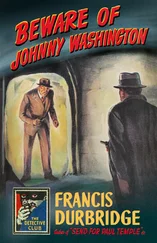When Jack died of liver damage, Freddie was seven years old. Shortly afterwards, he was placed with his sister in an orphanage. Freddie was in some ways lucky insomuch that the children’s home turned out to be the local charitable Blue Coat School, which was well considered and had a good standing, being located in the Wavertree suburb of Liverpool – less than half a mile from Penny Lane.
While Freddie and Julia grew up, the pressures to find work increased as the recession of the 1930s continued. Freddie was at a distinct disadvantage here, having suffered from rickets as a child. This condition forced him into wearing callipers, which resulted in stunted growth (5ft 4in) and bandy legs. But any physical disadvantages were more than made up for by an exuberant personality and the ability to perform a song at the drop of a hat. This came together with a strong sense of humour and wit. As a youngster he would give Saturday ‘shows’. This would consist of taking in a few pennies from friends for a performance which included songs and imitations of Charlie Chaplin and the latest hits, which he played on his harmonica.
While at Blue Coat School, Freddie, with his older brother Sidney, visited the local Empire Theatre to see the children’s spectacular, Will Murray’s Gang. He was immediately bitten by the showbiz bug. Backstage after the show, Freddie approached Will Murray with the less-than-subtle declaration of ‘I’m better than your leading boy’. 4Taken in with the young Freddie’s confidence and smart Blue Coat School uniform, Murray offered him a place in the troupe. His delight was shattered when he was told in no uncertain terms by the headmaster that this would not happen. Undeterred, the rebel in Freddie made him decide to write his mother a farewell letter and make his own way to Glasgow – the next venue for the show. Within a few days, Freddie’s world collapsed. Blue Coat’s headmaster turned up at the Glasgow venue and escorted him by train back home. Worse was to follow when the same headmaster ridiculed him in a full assembly at the school. He derided and goaded him with such comments as: ‘You thought you were going to be a star’, and ‘Which part were they going to give you, Tom Thumb or perhaps one of the Seven Dwarfs?’ 5The assembled boys laughed on cue.
If this was an effort to break Freddie’s spirit and make him conform, it failed. He was determined to make his own rebellious and unorthodox way in life and turned a deaf ear to those who criticised him. The showbiz bug in Freddie was to find inspiration in two places. The first was the opportunities that a life in the merchant navy could offer and the chance to give a ‘turn’ to both the ship’s crew and passengers. Freddie would spend many hours down at the Pier Head gazing enviously at the cargo ships and liners passing through the mouth of the Mersey, making journeys to places such as Valparaiso, Cape Town and Shanghai. A local journalist at the time described the Pier Head as ‘a threshold to the ends of the earth’. 6The second source of inspiration turned out to be the free-spirited – and some might say the slightly eccentric – Julia Stanley. The problem for Freddie was simple: life at sea and being with Julia weren’t compatible.
Julia Stanley was a nonconformist during a time of mass unemployment and political uncertainty, a period when one couldn’t really afford to be as unconventional as she was. The 1930s were witness to unprecedented economic depression and extreme austerity, but she did not worry. The vagaries of trade for the port left it particularly vulnerable to high unemployment. The largest area of work for women in the city, and still a reflection of the wealth, was domestic service. Thousands of household servants found employment in the richer sections of the city. The attitudes of a nonconformist like Julia to a position ‘in service’ as a parlour maid or scullery girl was incredulity and disdain. At her first job in a printer’s shop in the city centre, she lasted only a week before being sacked due to her indulgence in horseplay and practical jokes. Freddie’s own first job, by coincidence, was as a bellboy at the Adelphi Hotel, the same hotel that was to employ Julia’s common law husband, Bobby Dykins, as wine waiter. While Julia was in many ways an easy-going type of person, often described as happy-go-lucky and good company, Mimi was assertive and aggressive. The sisters could not be more opposite. Mimi looked towards social mobility and the skills she had gathered in her role as ‘second mother’. This brought authority and obedience over her younger sisters. Mimi was all for pulling oneself up by the boot straps. She was a social climber of the first order. She lived by a code in which accent was one of the first indicators as to how she would treat a person.
These values would be exercised on the young John Lennon in later years at Mendips. The effects of the ‘hungry thirties’ increasingly moulded Mimi’s already powerful personality into a burning need for status, career and a comfortable niche in life. Julia’s reaction towards a career, by contrast, was not to have one. Because she liked films, she instead found herself a job in the local cinema as an usherette. Mimi, meanwhile, moved from the discipline of dealing with her siblings to the discipline of dealing with patients: she became a trainee sister in the Woolton Convalescent Home, situated in an affluent suburb of Liverpool. She was also personal assistant to an industrial magnate who made his fortune in biscuits in Manchester. Mr Vickers invited Mimi to become a personal secretary at the family home in Betws-y-Coed on the North Wales coast. Here she enjoyed the life she craved. She was treated as one of the family with trips on Vickers’ yacht around the coast. For reasons that remain unclear, this was only to last a year. While Mimi had her goals of self-advancement, Freddie found his size and frame disqualified him from the manual work of the docks, but his education at a well-respected school led him to the position as bellboy at the Adelphi. Eventually, when the Great Depression hit really hard and unemployment in the city reached 30 per cent, Freddie found work as a ship’s steward. Julia, much to the concern of her family, was content to continue work as a shop girl or usherette.
One escape from the gloom of the depression was the cinema. Cinema was glamorous, warm and cheap, while working-class homes were in the main cold, damp, overcrowded and uncomfortable. Just as people had their local pub, so many neighbourhoods had a network of cinemas in the 1930s; they were geared to accommodate just how far the person could afford to travel to their ‘local pally’ (palace). A network of neighbourhood cinemas existed in Liverpool and other major cities, and picture palaces were in walking distance for most city dwellers. American films of the period depicting hard-nosed, wisecracking Irish-American actors such as Spencer Tracy, Pat O’Brien and James Cagney were much preferred to those featuring their English counterparts: Basil Rathbone types, decked out with a pair of brogues and a three-piece Harris Tweed suit, who solved and explained mysteries in oak-panelled drawing rooms with a clipped Oxbridge accent. But the Liverpool audiences could identify with streetwise people like Cagney as ‘one of us’. Cagney’s persona of tough guy, underdog and cynical wisecracker showed what could be achieved by a second-generation Irish family. The previous decade of Celtic influence in Liverpool gave way and morphed into an Irish-American perception of how the world should be run. The sense of apartness from England and of being connected to Ireland was, perhaps, finally on the wane. But, if anything, the severity of the depression and lack of government support in the 1930s gave cities like Liverpool an added insularity, something that persisted into the 1950s, 1960s and beyond.
Читать дальше












